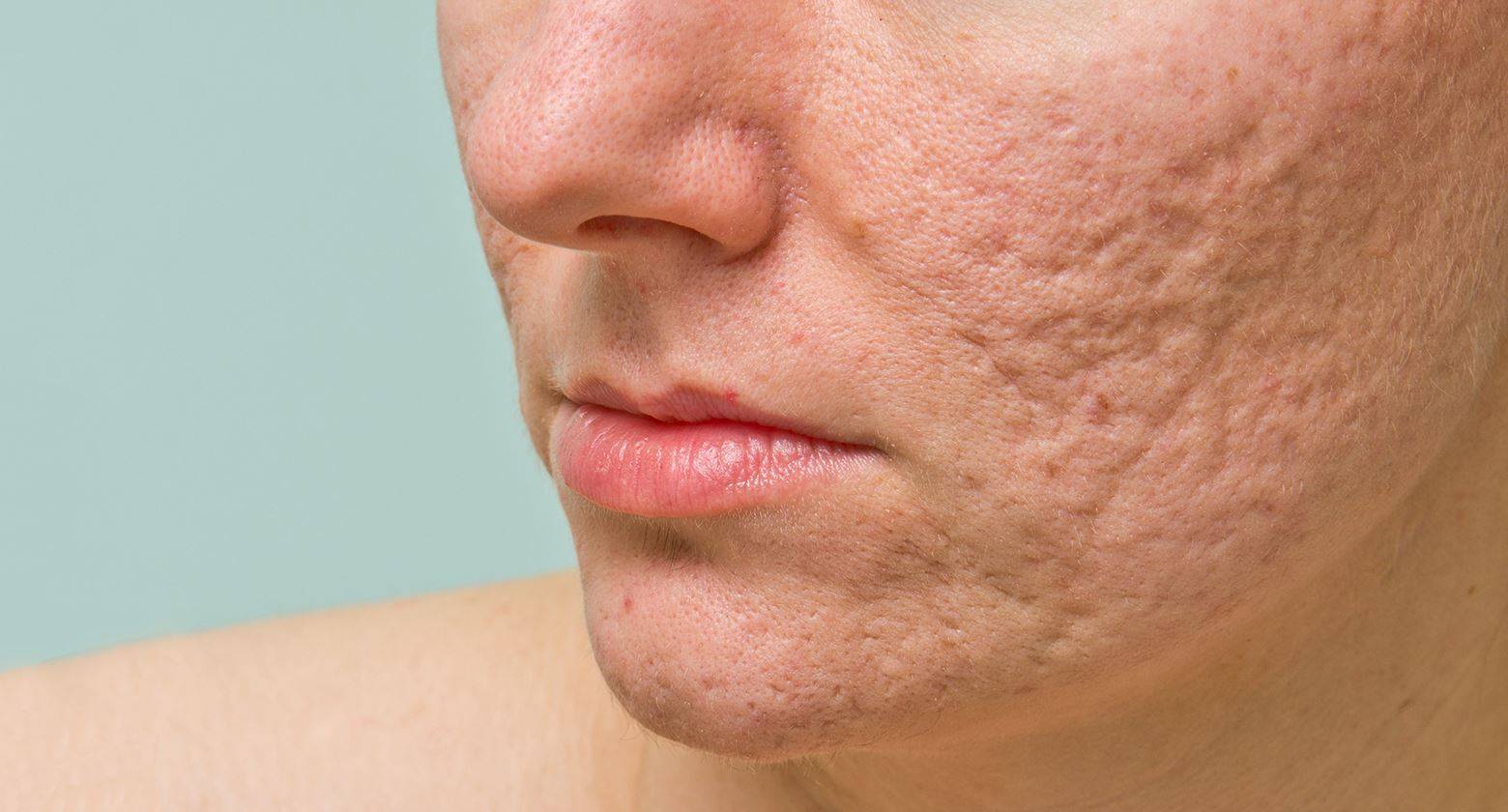Acne is one of the most common skin conditions affecting people of all ages, and it can be frustrating to find the right products to address the issue. Thankfully, there are various proven ingredients that can help fight acne and restore healthy skin. Whether you’re battling occasional breakouts or persistent acne, understanding which ingredients work best is essential. Estheticsbymonica provides excellent guidance for those looking to incorporate the most effective skincare ingredients into their routine. In this comprehensive guide, we’ll explore the top ingredients that help clear acne and promote smoother, clearer skin.
1. Salicylic Acid: The Classic Acne Fighter
Salicylic acid is one of the most popular and effective acne-fighting ingredients. A beta-hydroxy acid (BHA), it works by penetrating deep into the pores to break down the oil and debris that contribute to acne formation. By exfoliating the skin’s surface, salicylic acid helps prevent clogged pores, which is a primary cause of breakouts. It also has anti-inflammatory properties that can reduce the redness and swelling associated with acne.
Salicylic acid is commonly found in cleansers, toners, and spot treatments. It is effective for mild to moderate acne and is suitable for oily and acne-prone skin. Regular use of products containing salicylic acid can lead to a noticeable reduction in acne and blemishes.
Benefits:
- Exfoliates and clears clogged pores
- Reduces inflammation and redness
- Helps treat blackheads, whiteheads, and acne
How to Use:
Start with a lower concentration (0.5% to 2%) and gradually increase as your skin builds tolerance. Apply it to the affected areas after cleansing.
2. Benzoyl Peroxide: A Powerful Antibacterial Agent
Benzoyl peroxide is another highly effective ingredient for treating acne, especially for inflammatory types like cystic acne. It works by killing the bacteria (Propionibacterium acnes) that contribute to acne, thus preventing new breakouts. Benzoyl peroxide also helps to dry out excess oil on the skin, which further prevents the clogging of pores.
This ingredient can be found in many over-the-counter acne treatments, such as creams, gels, and cleansers. While it’s highly effective, benzoyl peroxide can be drying, so it’s important to follow up with a moisturizer to maintain skin hydration.
Benefits:
- Kills acne-causing bacteria
- Reduces inflammation
- Helps clear acne lesions and prevent future breakouts
How to Use:
Start with a lower concentration (2.5% to 5%) to minimize skin irritation, and use it once or twice a day. Apply it directly to acne-affected areas after cleansing.
3. Retinoids: The Anti-Acne Powerhouses
Retinoids, such as retinol and tretinoin, are derivatives of vitamin A that are well-known for their ability to treat acne and promote skin renewal. Retinoids speed up cell turnover, which helps prevent pores from becoming clogged with dead skin cells—one of the leading causes of acne. They also have anti-inflammatory properties, making them effective for treating both mild and severe acne.
Retinoids are typically recommended for individuals dealing with chronic acne or those who suffer from both acne and signs of aging, as they help improve skin texture and reduce scarring over time. However, they can be irritating when you first start using them, so it’s crucial to introduce them gradually into your skincare routine.
Benefits:
- Speeds up skin cell turnover
- Prevents clogged pores
- Reduces acne scarring and hyperpigmentation
- Improves skin texture
How to Use:
Start with a lower concentration (0.25% to 0.5%) and apply once or twice a week at night. Gradually increase the frequency as your skin becomes accustomed to the product.
4. Tea Tree Oil: A Natural Acne Solution
Tea tree oil is a natural antiseptic and anti-inflammatory agent that is often used to treat acne. This essential oil has been shown to be effective in reducing acne lesions and redness. The active ingredient in tea tree oil, terpinen-4-ol, helps to kill the bacteria that cause acne while soothing the skin and reducing inflammation.
While tea tree oil is gentler than some of the harsher chemical acne treatments, it’s still important to dilute it before applying it directly to the skin. Pure tea tree oil can be irritating to sensitive skin, so always patch-test it first.
Benefits:
- Kills acne-causing bacteria naturally
- Reduces inflammation and redness
- Soothes irritated skin
How to Use:
Dilute tea tree oil with a carrier oil (like jojoba or coconut oil) in a 1:9 ratio before applying it to acne-affected areas. Alternatively, you can use products that already contain tea tree oil in lower concentrations.
5. Alpha Hydroxy Acids (AHAs): For Gentle Exfoliation
Alpha Hydroxy Acids (AHAs), such as glycolic acid and lactic acid, are water-soluble acids that help exfoliate the skin’s surface, removing dead skin cells that can clog pores and lead to breakouts. AHAs are especially effective for individuals with dry or sensitive skin, as they provide exfoliation without the harsher effects of some other acne treatments.
In addition to clearing pores, AHAs help improve skin texture, reduce hyperpigmentation, and promote an even skin tone. They also offer mild hydration, which can help soothe and nourish the skin.
Benefits:
- Gently exfoliates dead skin cells
- Prevents clogged pores
- Improves skin tone and texture
- Hydrates the skin
How to Use:
Use an AHA-based cleanser or toner after cleansing your face. You can also apply it as a treatment mask once a week for deeper exfoliation. If you’re new to AHAs, start with a lower concentration (5% to 10%).
6. Niacinamide: The Skin Soothing Hero
Niacinamide, also known as vitamin B3, is an anti-inflammatory ingredient that is often used to treat acne and improve overall skin health. It helps reduce redness and irritation associated with acne while also controlling oil production, making it effective for both dry and oily skin types.
In addition to its acne-fighting properties, niacinamide can help brighten the skin, reduce post-inflammatory hyperpigmentation (dark spots), and improve the skin’s barrier function. It’s also a gentle ingredient, making it suitable for sensitive skin.
Benefits:
- Reduces acne-related redness and irritation
- Controls oil production
- Fights dark spots and post-acne marks
- Improves skin barrier health
How to Use:
Niacinamide can be found in serums, moisturizers, and toners. For best results, use it twice a day after cleansing, before moisturizing.
7. Zinc: The Mineral for Acne Control
Zinc is an essential mineral that has gained popularity as a remedy for acne. It helps regulate oil production in the skin, preventing clogged pores, and it has anti-inflammatory properties that reduce the swelling and redness of active breakouts. Zinc also has antibacterial properties, helping to prevent bacterial growth and infection in acne lesions.
Although zinc can be applied topically, it is also beneficial when taken orally. Zinc supplements can help reduce the severity of acne, particularly in individuals with zinc deficiencies. However, it’s essential to consult with a healthcare provider before starting any supplement regimen.
Benefits:
- Regulates oil production
- Reduces inflammation
- Prevents bacterial growth
- Helps treat both inflammatory and non-inflammatory acne
How to Use:
Look for zinc-infused creams, gels, or serums, and apply directly to acne-prone areas. Zinc supplements should be taken as recommended by a healthcare professional.
8. Sulfur: The Acne Absorber
Sulfur has long been used to treat acne due to its ability to absorb excess oil and prevent the formation of pimples. It also has antimicrobial properties that kill acne-causing bacteria. Sulfur is particularly useful for treating cystic acne and stubborn blemishes that don’t respond to other treatments.
Unlike some other acne-fighting ingredients, sulfur is gentler on the skin, making it an excellent option for those with sensitive skin. However, it can leave a strong scent, so it’s often used in combination with other ingredients in acne treatments.
Benefits:
- Absorbs excess oil
- Kills acne-causing bacteria
- Soothes the skin
How to Use:
Sulfur can be applied in masks, spot treatments, or cleansers. Use as directed, typically once or twice a day.
Conclusion: Choosing the Right Ingredients for Your Skin
Fighting acne requires a multi-faceted approach, and understanding the various ingredients available can help you create an effective skincare routine. Whether you’re using salicylic acid, benzoyl peroxide, or natural options like tea tree oil, each ingredient offers unique benefits for treating acne. Always remember to patch-test new products and introduce them gradually to avoid irritation. If you’re unsure which ingredients are right for your skin type, consulting with a dermatologist or skincare professional can help you make an informed decision.
By incorporating the best ingredients for acne, you can take control of your skincare journey and achieve clearer, healthier skin.




